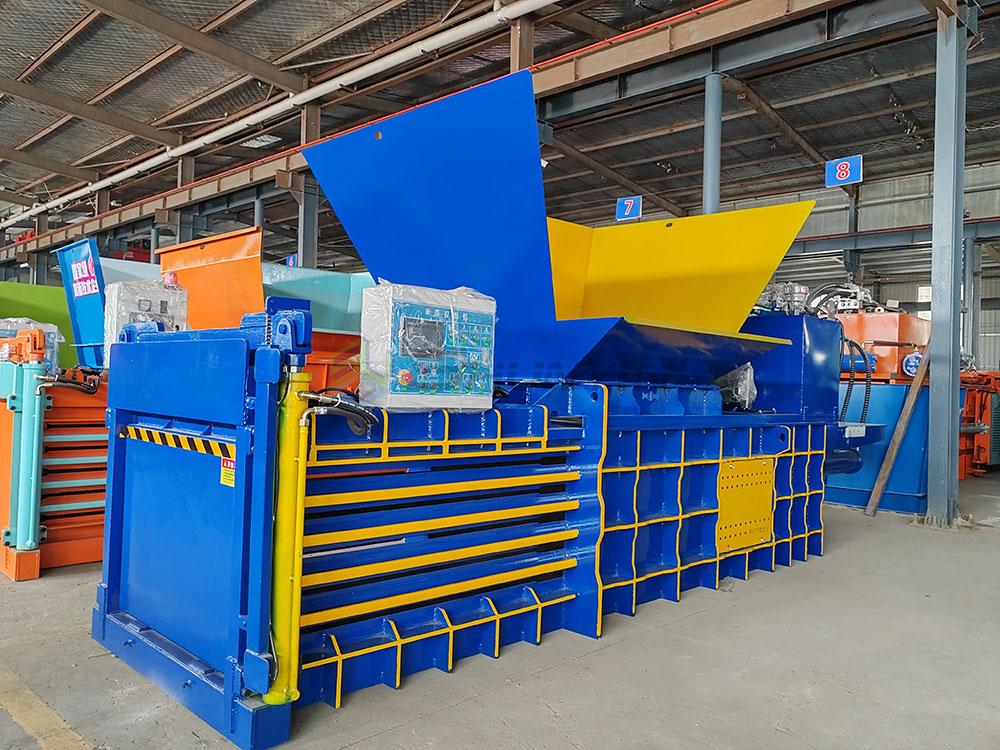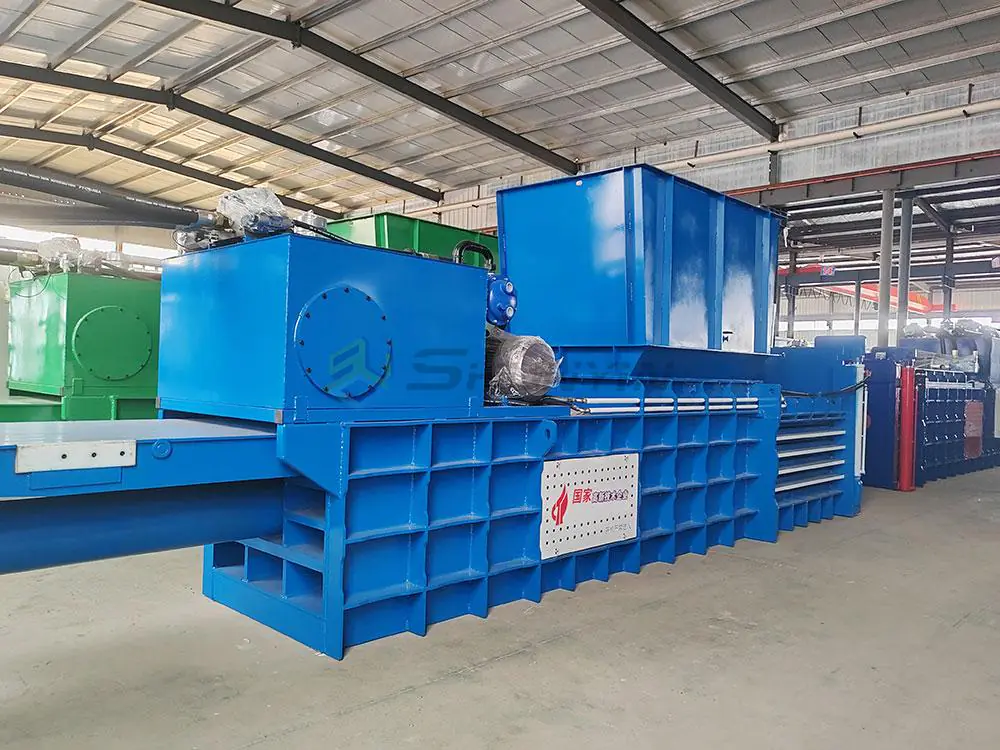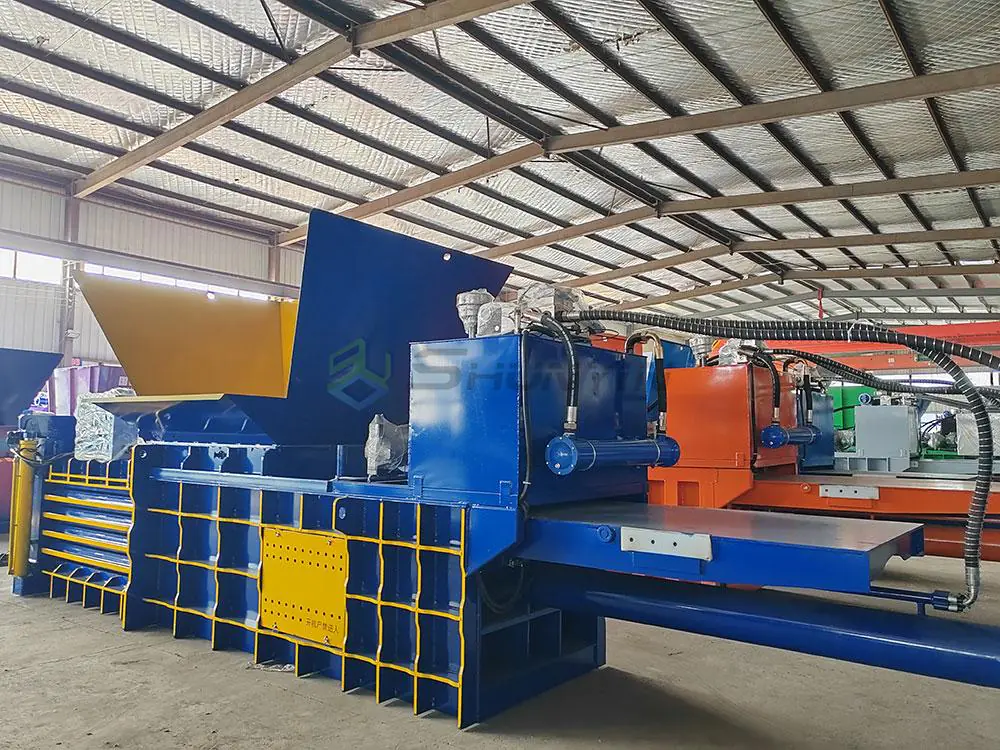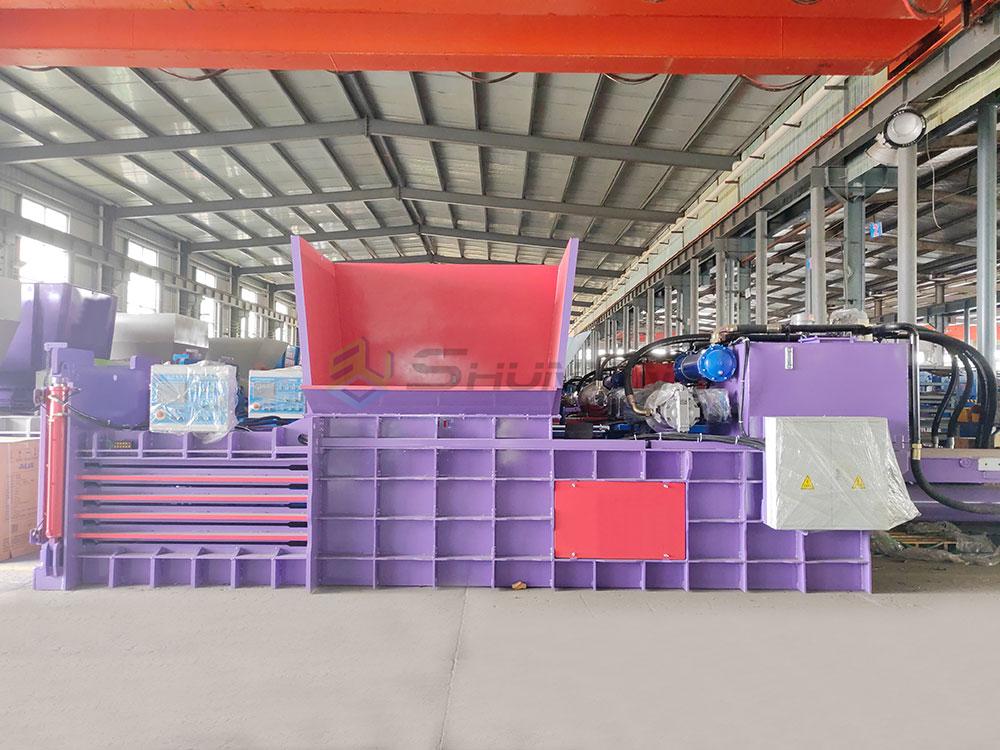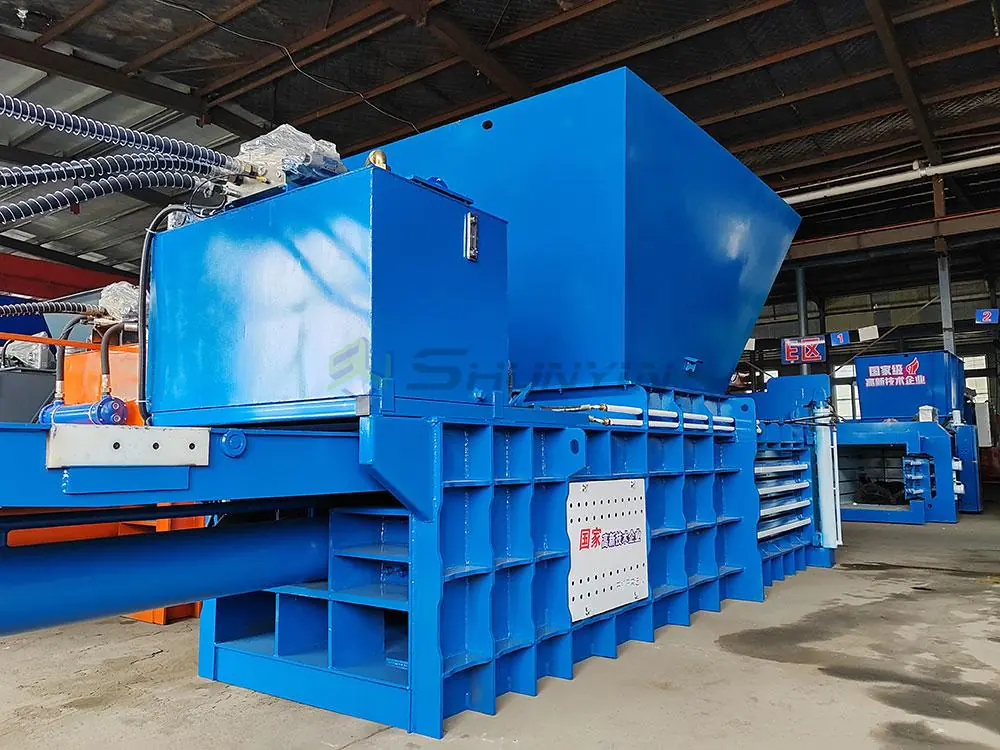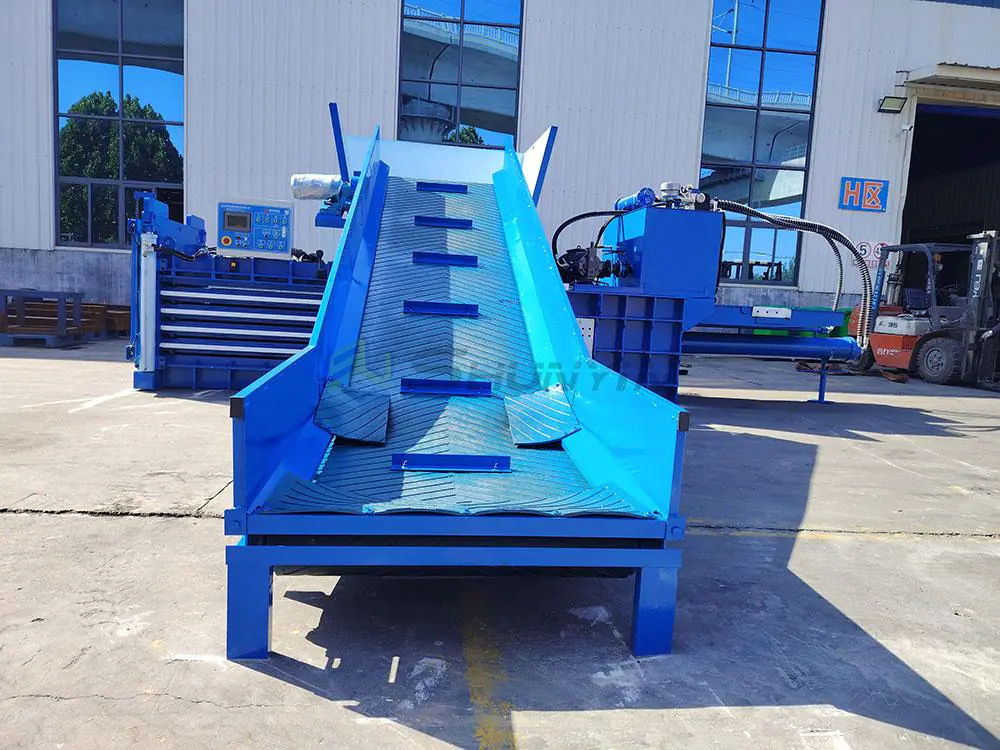
Adopting horizontal hydraulic balers can revolutionize your business operations by enhancing efficiency, reducing costs, and promoting sustainability. Businesses dealing with large volumes of waste or agricultural materials find these machines indispensable for streamlined operations. Understanding the transformative impact of horizontal hydraulic balers helps in making informed decisions that align with your operational goals.
Horizontal hydraulic balers transform business operations by streamlining waste management processes, reducing labor costs, and optimizing space. They improve recycling efficiency, allowing businesses to handle larger volumes of waste in less time. By creating compact, easy-to-store bales, these balers also reduce transportation and disposal costs. Ultimately, they contribute to more sustainable, cost-effective, and efficient business practices.
When we first integrated a horizontal hydraulic baler into our facility, the immediate boost in efficiency and the reduction in waste management costs were remarkable. This change not only improved our bottom line but also enhanced our commitment to sustainability.
What are the advantages of the baler machine?
Baler machines offer numerous advantages that can significantly enhance business operations across various industries.
Baler machines provide key benefits such as volume reduction, cost savings, improved storage efficiency, and enhanced recycling capabilities. These advantages contribute to more efficient waste management and operational excellence.

Volume Reduction
Baler machines compress waste materials, reducing their volume by up to 90%. This significant reduction allows businesses to handle larger quantities of waste in smaller spaces, optimizing storage and transportation.
Cost Savings
By minimizing the volume of waste, baler machines lower transportation and disposal costs. Fewer trips are needed to transport the same amount of waste, resulting in substantial savings over time.
Improved Storage Efficiency
Compressed bales take up less space, enabling better organization and utilization of storage areas. This efficiency is particularly beneficial for businesses with limited storage capacity.
Enhanced Recycling Capabilities
Baler machines facilitate the recycling process by producing uniform bales that are easier to handle and transport. This uniformity improves the efficiency of recycling operations and supports sustainability initiatives.
Environmental Benefits
Using baler machines reduces the environmental impact of waste by decreasing the amount sent to landfills and promoting recycling. This contributes to a more sustainable business model and enhances corporate social responsibility.
Dive Deeper: Operational Efficiency
Implementing baler machines can streamline waste management workflows, allowing businesses to allocate resources more effectively. Automated baling processes reduce manual labor and minimize the risk of errors, leading to more consistent and reliable operations.
What is the function of balers in agriculture?
In the agricultural sector, balers play a crucial role in managing crop residues and other agricultural byproducts.
Balers in agriculture are used to compress and bundle crop residues such as hay, straw, and other plant materials into compact bales. This process facilitates easier handling, storage, and transportation, enhancing overall farm efficiency.

Efficient Handling of Crop Residues
Balers compress loose crop residues into dense bales, making them easier to handle and transport. This efficiency is essential for large-scale farming operations where managing vast quantities of plant material can be challenging.
Storage Optimization
Compact bales occupy less storage space, allowing farmers to maximize their storage facilities. This optimization is particularly beneficial during peak harvesting seasons when storage space is at a premium.
Protection of Crop Quality
Baling crop residues helps protect them from environmental factors such as moisture and pests. Properly baled materials maintain their quality, making them suitable for various uses, including animal feed and soil amendment.
Facilitating Transportation
Baler machines produce uniform bales that are easier to transport using standard farming equipment. This uniformity reduces transportation costs and improves logistics efficiency.
Supporting Sustainable Practices
By efficiently managing crop residues, balers support sustainable farming practices. Proper handling and storage of agricultural byproducts contribute to soil health and reduce the environmental impact of farming operations.
Dive Deeper: Impact on Farm Productivity
Implementing baler machines in agricultural operations can significantly boost productivity. By automating the baling process, farmers can save time and labor, allowing them to focus on other critical aspects of farm management. Additionally, the improved handling and storage of crop residues enhance overall farm efficiency and output.
What is a hydraulic baling machine used for?
Hydraulic baling machines are versatile tools used across various industries to manage and process different types of materials efficiently.
Hydraulic baling machines are used to compress and bind materials such as paper, plastics, metals, and agricultural residues into dense bales. This compression facilitates easier storage, transportation, and recycling, making these machines essential for efficient waste management and material handling.

Waste Management
Hydraulic baling machines are widely used in waste management to compress recyclable materials like paper, plastics, and metals. This compression reduces the volume of waste, making it easier to store and transport to recycling facilities.
Agricultural Applications
In agriculture, hydraulic balers are used to bale hay, straw, and other crop residues. These bales are easier to handle and transport, improving farm operations and reducing labor costs.
Industrial Uses
Industries use hydraulic balers to manage scrap materials and waste generated during manufacturing processes. By compressing these materials, industries can streamline their waste disposal processes and reduce environmental impact.
Recycling Centers
Recycling centers rely on hydraulic balers to process and compact recyclable materials. The uniform bales produced by these machines enhance the efficiency of recycling operations and support sustainable waste management practices.
Commercial Use
Retail stores and commercial establishments use hydraulic balers to manage packaging waste, such as cardboard boxes. Compressing these materials helps reduce storage space requirements and lowers transportation costs.
Dive Deeper: Enhancing Operational Efficiency
Hydraulic baling machines significantly enhance operational efficiency by automating the compression and binding processes. This automation reduces the need for manual labor, speeds up material handling, and ensures consistent bale quality. As a result, businesses can manage larger volumes of waste or materials more effectively, leading to increased productivity and cost savings.
What is a baler in waste management?
In waste management, balers play a pivotal role in streamlining the handling and processing of recyclable materials.
A baler in waste management is a machine designed to compress and bind recyclable materials such as paper, plastics, and metals into compact bales. This process facilitates easier storage, transportation, and recycling, contributing to more efficient and sustainable waste management practices.

Compression of Recyclable Materials
Balers compress loose recyclable materials into dense bales, significantly reducing their volume. This compression makes it easier to store and transport these materials to recycling facilities.
Cost-Effective Waste Management
By reducing the volume of waste, balers help lower transportation and disposal costs. Businesses can transport more material in fewer trips, leading to substantial cost savings over time.
Improved Storage Solutions
Compressed bales take up less space, allowing for more efficient use of storage areas. This improvement is particularly beneficial for businesses with limited storage capacity or those handling large volumes of waste.
Enhanced Recycling Processes
Balers produce uniform bales that are easier to handle and process in recycling facilities. The consistent size and shape of the bales streamline the recycling workflow, increasing the overall efficiency of recycling operations.
Environmental Sustainability
Using balers in waste management promotes environmental sustainability by encouraging the recycling of materials and reducing the amount of waste sent to landfills. This practice helps conserve natural resources and minimizes the environmental impact of waste disposal.
Dive Deeper: Integration with Recycling Systems
Integrating balers into existing recycling systems can further enhance waste management efficiency. Automated balers equipped with smart technology can communicate with recycling facility systems, optimizing the baling process based on real-time data. This integration ensures that recyclable materials are processed swiftly and effectively, reducing bottlenecks and improving overall recycling rates.
Conclusion
Horizontal hydraulic balers have a profound impact on business operations across various industries by optimizing waste management processes, enhancing efficiency, and promoting sustainability. The advantages of baler machines, their functions in agriculture and waste management, and their versatile applications make them indispensable tools for modern businesses. By understanding and implementing best practices for using horizontal hydraulic balers, businesses can achieve significant cost savings, improve operational efficiency, and contribute to a more sustainable future. Investing in advanced baling technology not only streamlines waste management but also supports long-term business growth and environmental responsibility.


